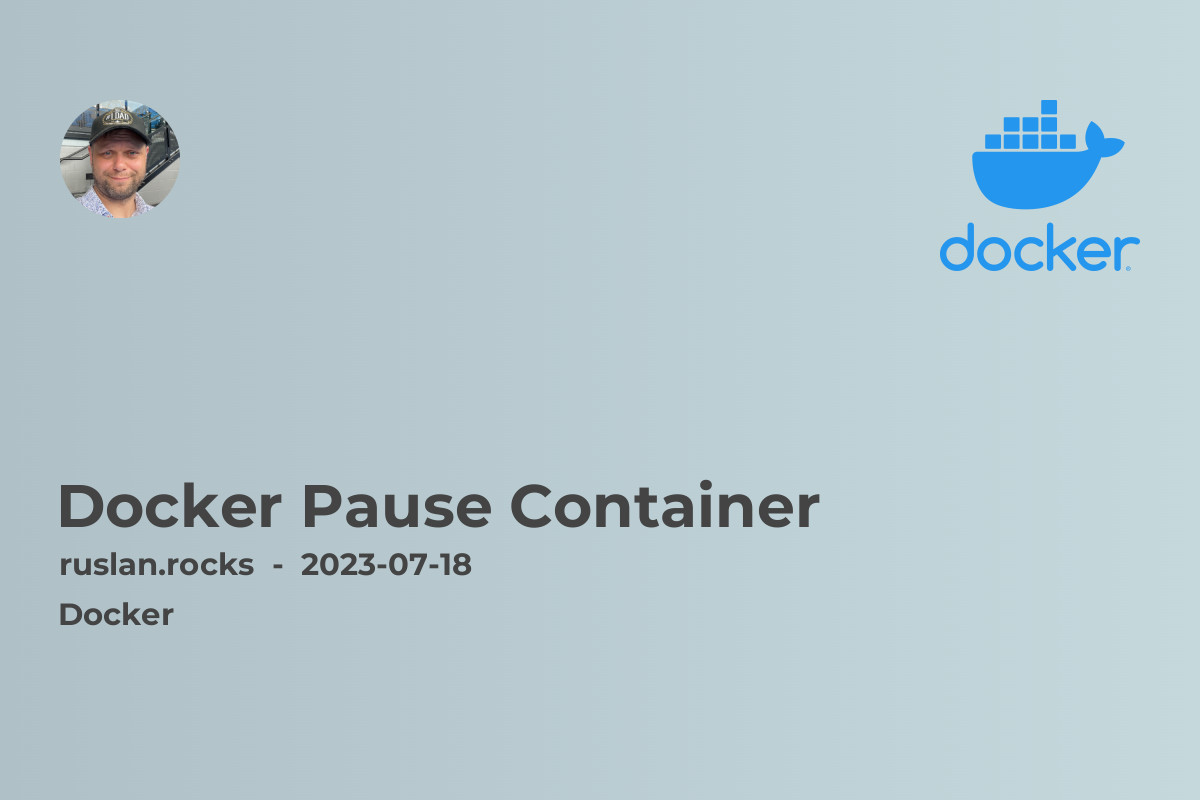- What is Docker Pause Container?
- How to Pause a Docker Container
- Benefits of Using Docker Pause Container
- Related Articles

The Docker Pause Container feature is a powerful tool that enables the suspension of a running container, allowing you to temporarily freeze its execution. But what exactly is a pause container, and how can it benefit your containerized applications? In this article, we will explore the ins and outs of Docker Pause Container and discover its use cases and advantages. So let's dive in!
What is Docker Pause Container?
A Docker Pause Container is a special type of container that is used for suspending the execution of a running container. When a container is paused, its processes are frozen, and it is put into a suspended state. This means that the container remains in memory, but its execution is temporarily halted, saving valuable CPU and memory resources.
Why do we need to pause a container?
There are several reasons why you might want to pause a container:
-
Resource Management: Pausing containers can help optimize resource utilization, especially in scenarios where you have a limited amount of available resources. By pausing idle containers, you can free up CPU and memory for other critical tasks.
-
Troubleshooting: Pausing a container allows you to inspect its state and troubleshoot any issues that may have arisen during its execution. You can use this feature to examine variables, inspect log files, and debug your application within the suspended container.
-
Testing and Development: Pausing a container can be useful during testing and development phases. It provides developers with the ability to freeze a container's execution at any point in time, making it easier to analyze its behavior and identify potential issues.
How to Pause a Docker Container
Pausing a Docker container is a straightforward process. You can pause a container using the following Docker command:
docker pause <container_name_or_id>
To resume the execution of a paused container, you can use the docker unpause command:
docker unpause <container_name_or_id>
It's important to note that only the processes within the container are frozen when you pause it. The container's state, including its file system and network connections, remains unchanged.
Benefits of Using Docker Pause Container
Now that we have a clear understanding of what a Docker Pause Container is and how to use it, let's explore some of the benefits this feature offers:
-
Resource Optimization: By pausing containers that are not actively running processes, you can optimize resource allocation on your Docker host. This can lead to improved overall performance and enhanced scalability.
-
Enhanced Troubleshooting: The ability to freeze a container's execution provides a powerful tool for troubleshooting. Pausing a container allows you to closely inspect its state and diagnose issues without affecting the rest of your application.
-
Efficient Testing and Development: Pausing a container during testing and development allows you to examine its behavior at a specific point in time. This can be particularly useful when trying to replicate and debug issues that only occur under certain conditions.
-
Reduced Costs: By optimizing resource usage and improving overall efficiency, Docker Pause Containers can help reduce costs associated with running containerized applications. This is especially important in cloud environments where resource allocation and consumption are closely monitored.
-
Improved Container Management: Pausing containers can simplify container management by allowing operators to control the execution of individual containers. This can be particularly beneficial in scenarios where strict resource limits need to be enforced or when performing maintenance tasks on specific containers.
Related Articles
To learn more about Docker and related topics, check out these informative articles:
-
What Is Docker: Discover the fundamentals of Docker and understand its role in modern software development.
-
Docker Containers vs. Virtual Machines: Explore the differences between Docker containers and virtual machines and determine which option is best for your specific use case.
-
Docker Networking - How to Connect Containers: Learn how to create and manage networks between Docker containers to enable seamless communication.
-
Docker Security Best Practices: Gain insights into best practices for securing your Docker containers and safeguarding your applications and data.
-
Docker Compose: Dive into the world of Docker Compose and discover how it simplifies the deployment and management of multi-container applications.
In conclusion, Docker Pause Container is a valuable feature that allows for the temporary suspension of container execution. By pausing containers, you can optimize resource utilization, enhance troubleshooting capabilities, and streamline your testing and development processes. Docker Pause Container is just one of the many powerful tools Docker provides to simplify container management and improve overall efficiency. So why not give it a try and harness the benefits it offers for your containerized applications?
Remember, Docker Pause Container is just one piece of the puzzle. To truly master Docker and unleash its full potential, make sure to explore other related topics and stay up-to-date with the latest advancements in the world of containerization. Happy containerizing!

